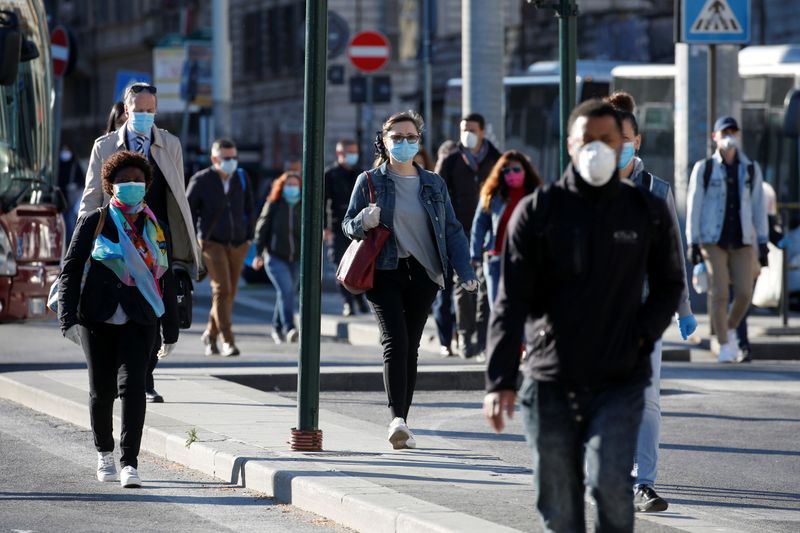(Reuters) - Here's what you need to know about the coronavirus right now:
Italy's lockdown exit: It's a family affair
Italy is among the countries easing social distancing restrictions on Monday, including reopening factories, construction sites, hairdressers and libraries. Others include Spain, Nigeria, Azerbaijan, Malaysia and Lebanon.
But in Italy, the hardest hit country in Europe with the longest lockdown, confusion reigns.
Guidelines issued by the government over the weekend noted that visits to distant relatives will be allowed, including the children of cousins, or the cousins of spouses, as well as visits to anyone with whom one has "a stable bond of affection".
But they did not say whether friendship counted as a stable bond of affection, until an off-the-record message to media outlets from the prime minister's office explained that visits to friends are still not permitted.
A warning from India
Agra, famed for the 17th-century marble-domed Taj Mahal, was lauded by Prime Minister Narendra Modi's government as a template for India's battle against COVID-19.
After confirming its first cases in early March, the city of 1.6 million people set up containment zones based on detailed household-level plans developed for polio control by the World Health Organization (WHO). It also screened hundreds of thousands of residents and conducted widespread contact tracing.
By early April, the northern city thought it had the virus beat. But it turns out a resurgence was already in the works, fuelled by attendees to a gathering of the Islamic missionary group Tablighi Jamaat in New Delhi in late March: Agra now has around 600 coronavirus cases and 14 deaths.
Trans-Tasman travel bubble?
New Zealand and Australia are discussing the potential creation of a "travel bubble" between the two countries.
New Zealand Prime Minister Jacinda Ardern will take part in a meeting of Australia's emergency coronavirus cabinet on Tuesday, the Australian government said, stoking speculation that two-way travel over the Tasman Sea could be permitted.
Shopping with a vengeance...
In South Korea, shoppers and travellers crowded malls and beaches on the first long weekend since the country began easing coronavirus curbs last month.
With early-summer weather helping retail therapy return with a vengeance, the term "bobok sobi" - revenge shopping - has trended on the nation's social media. There is no malice intended. The phrase describes the bounce-back in spending as people rush to make purchases delayed by social-distancing rules.
...vs. #ditchyourstuff minimalism
In marked contrast to the euphoric spending seen in South Korea, for a growing number of Chinese hit by job losses, furloughs and salary cuts, the consumer economy has begun to spin in reverse. They are no longer buying - they are selling.
Instead of emerging from the coronavirus epidemic and returning to the shopping habits that helped drive the world's second-largest economy, many young people are offloading possessions and embracing a new-found ethic for hard times: less is more.
The goat and the pawpaw
Tanzania has pulled from circulation coronavirus test kits that have returned positive results on samples taken from ... a goat and a pawpaw.
The discovery came after local security forces were asked to check the quality of the kits. They randomly obtained several non-human samples, including from a pawpaw, a goat and a sheep.

The kits themselves were imported from abroad - where exactly has yet to be disclosed.